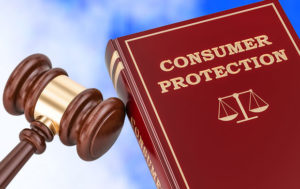This is Part 2 of a new series providing advice about website development contracts for businesses engaged in e-commerce. Part 1 covers how to avoid major disasters.
When entering into website development contracts, the more you know, the more likely you will be able to avoid common pitfalls.
It is your website, but ownership of the intellectual property on the site is not always apparent or obvious. When you engage an information technology vendor to build a new website you probably expect that you will own the IP in the end product. Unfortunately, that may not be the case.
IP laws are somewhat complicated and can vary by state, as can the type of IP involved. It’s critically important to have a firm grasp of what is your IP and what is the IT vendor’s IP, and whether any third-party IP licenses need to be secured on the front end.
You don’t want to be surprised about who owns what after your website is delivered. To avoid finding yourself in this situation, it is critical to do your homework before you begin negotiations with an IT vendor and to make sure the rights and ownership to IP are clearly identified and delineated in the website development contract.
What Is IP?
“Intellectual property,” or “IP,” is a general term used to describe a variety of types of valuable, intangible and protectable interests. IP includes patents, copyrights, trademarks and trade secrets. Each of these types of IP has its own unique, distinguishable characteristics, and each is governed by its own state and federal statutes and common law.
Because of these distinctions, different types of IP require different treatment and protections in contracts, including website development contracts.
The following IP discussion and summaries are high-level descriptions, and not intended to be the specific IP law you will encounter in your website development contract since this column is written as generalized advice. You should seek specific legal advice about IP before signing any website development contract.
Patents
Patents are registered with the U.S. Patent & Trademark Office (USPTO), or a foreign patent treaty or organization, for new original ideas that are not part of nature. The patent registration process is costly and time-consuming. While a “patent is pending” or until it is secured, its owner cannot claim a patent exists.
Copyrights
Copyrights give the author the right to restrict making copies or creating derivative works. In the U.S., copyrights are controlled by the U.S. Copyright Office. Copyrights are created at the moment the author creates the work.
Unlike patents, there is no requirement that the copyrighted work be registered. However, the copyright registration process is required in order to file a lawsuit for an infringement.
Other countries around the world have similar laws, so the application of copyright laws likely will depend on where your website transacts business.
Trademarks
Trademarks in the U.S. come in three flavors: 1) common law, 2) state registration and 3) federal registration (filed with the USPTO). Each is a little different, but for website use, you need to understand how trademarks affect you. A common law trademark is one that is not registered, either on a state or federal level.
Common law trademarks are limited to the geographic region in which they are used. The Blue Note Jazz Hall in New York City enjoyed common law trademark protection. In 1995, it unsuccessfully sued the Blue Note in Columbia, Missouri, for using the bluenote.com domain name. The court ruled there was no likelihood of confusion between the common law trademarks in New York City and Columbia, Missouri.
As a trademark owner, you can obtain a trademark registration in your state, but if your website operates across state boundaries you should consider federal registration. A federal or international trademark registration is specific to the channel of commerce, rather than the physical location of the trademark.
Given the interstate nature of most e-commerce websites, federal registration is the only logical or feasible protection.
For example, when Toyota launched its Lexus brand of vehicles, the online legal reference provider LexisNexis brought a trademark infringement claim against Toyota. Luckily for Toyota, the court determined that because of the distinct business types (automobile versus online technology company) there was no likelihood of confusion between the two.
Trade Secrets
Trade secrets typically are governed on a state-by-state basis. However, that has changed somewhat since the passing of the federal Defend Trade Secrets Act of 2016. The DTSA can be invoked “if the trade secret is related to a product or service used in, or intended for use in, interstate or foreign commerce.”
Violations under the DTSA can be brought conjunctively with state claims. The DTSA also can be invoked to pursue claims for misappropriation that occurs outside the U.S.
In general, the term “trade secrets” encompasses a wide range of proprietary business information. Broadly speaking, to be protectable, the information must be valuable in that it is generally unknown by competitors in the industry, and the owner or holder must take reasonable steps to ensure its secrecy.
In this sense, it is the opposite of a patent, which the owner secures by registration in the public domain. In the context of website development contracts, to the extent you are willing to share or disclose any trade secret information with your IT vendor, you will need to secure written nondisclosure and confidentiality agreements prior to any disclosures. This would include access to most software source code, for example.
IT Vendor’s Pre-Existing IP
In most instances, the IT vendor will require you to agree that any IP used to create your website will continue to be the property of the IT vendor and third parties (where the IT vendor is using third-party licensed IP). It is important that you obtain a license to use that IP from the IT vendor in your new website, and for any third-party licenses for IP the IT vendor does not own.
Regardless of how the IT vendor presents the IP, it is essential that you get a license or ownership either to use the vendor IP forever (perpetual license), or for a finite period.
Alternatively, you can negotiate to own “all rights, titles, and interests in the IP,” so that if you were to migrate to a new website in the future, you would own the IP you paid for to manage your website.
Review the IP provisions in the proposed contract and statements of work (SOW)
The biggest takeaway here is this: Look closely at the IT vendor website development contracts and SOWs to understand the IP involved, who owns it now, and who will own it once the website is completed.
Also, as discussed in Part 1, it would be a good idea to talk to the IT vendor’s customers to learn what their experience was like — particularly, whether any undisclosed IP ownership issues popped up.
Of course, it would not be bad idea to engage an experienced IP lawyer who has dealt with these IP issues and can lend a critical eye to drafting and negotiating website development contracts and SOWs.


 Peter Vogel has been an ECT News Network columnist since 2010. His focus is on technology and the law. Vogel is Of Counsel at
Peter Vogel has been an ECT News Network columnist since 2010. His focus is on technology and the law. Vogel is Of Counsel at  Chelsea Hilliard has been an ECT News Network columnist since 2019. As an associate at Foley & Lardner LLP, she focuses her businesslitigation practice on trade secret noncompetition and securities enforcement. She also helps clients with complex electronic discovery disputes and has been recognized as Texas Rising Star attorney by Texas Monthly, and a Top Lawyer under 40 by D Magazine.
Chelsea Hilliard has been an ECT News Network columnist since 2019. As an associate at Foley & Lardner LLP, she focuses her businesslitigation practice on trade secret noncompetition and securities enforcement. She also helps clients with complex electronic discovery disputes and has been recognized as Texas Rising Star attorney by Texas Monthly, and a Top Lawyer under 40 by D Magazine. 


















































Thanks for the detailed article on IP address.